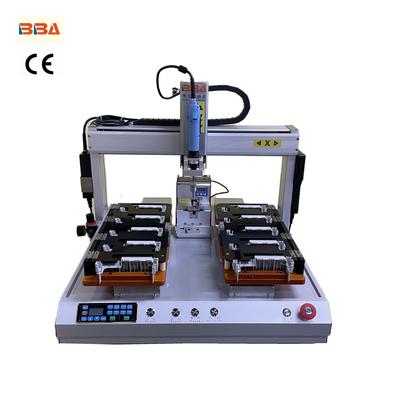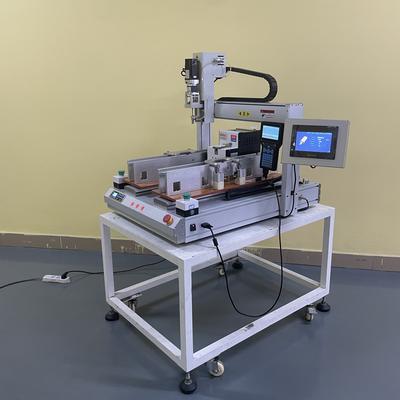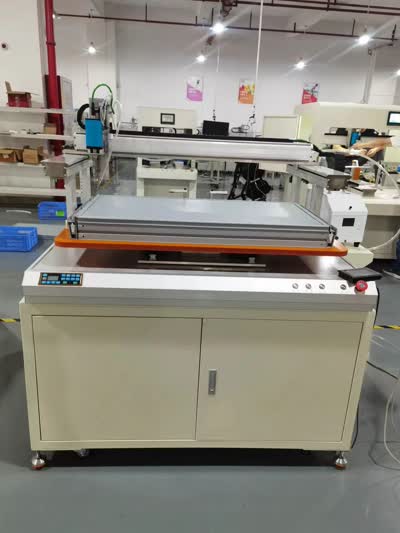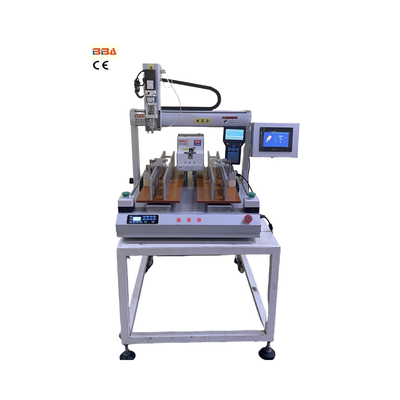Energy Efficient Servo Fastening Systems | Industrial Automation

| Product Name | Applicable industries |
| Inline Screw Locking System | Automotive Electronics Assembly |
Energy Efficiency in Servo-Based Fastening
In today's competitive industrial landscape, achieving optimal energy efficiency is no longer just an environmental consideration—it is a crucial factor for operational cost reduction and sustainable manufacturing. Servo-based fastening systems have emerged as a leading technology in this pursuit, offering significant advantages over traditional pneumatic and hydraulic solutions. These intelligent systems provide precise control over the fastening process, minimizing energy waste and enhancing overall production efficiency.
Precision Engineering for Reduced Energy Consumption
At the core of servo-based fastening technology is its ability to deliver exact torque and angle control with minimal energy expenditure. Unlike pneumatic tools that continuously consume compressed air—a notoriously inefficient energy medium—servo systems operate on-demand. Energy is only consumed during the actual fastening cycle. This eliminates the constant energy drain associated with keeping compressors running and air lines pressurized, even during idle periods. The result is a dramatic reduction in overall energy usage, often by 50% or more compared to traditional methods.
Smart Technology and Regenerative Braking
Modern servo fastening systems are equipped with advanced smart features that further amplify their energy-saving potential. Intelligent motion control algorithms optimize the motor's movement for each specific fastener and joint, ensuring no excess energy is used. Furthermore, many high-performance servo drivers incorporate regenerative braking technology. This innovative feature captures the kinetic energy generated when the motor decelerates and feeds it back into the power supply system. Instead of dissipating this energy as heat, it is recycled, leading to lower net energy consumption and reduced heat generation within the production facility, which can also lower cooling costs.
Optimizing Overall System Performance
The benefits of servo-based fastening extend beyond the tool itself to create a more efficient production cell. The precision and repeatability of these systems drastically reduce the rate of defective joints and rework. Eliminating defective products means avoiding the energy wasted in manufacturing, inspecting, and subsequently disassembling or scrapping faulty units. Additionally, the quiet operation and lack of oil mist associated with servo systems contribute to a cleaner, less energy-intensive work environment compared to hydraulic alternatives.
Key Advantages for a Sustainable Operation
- Significant Reduction in Electricity Costs: By eliminating the need for large compressors and reducing peak power demands.
- Lower Heat Output: Reduced energy dissipation translates into a cooler factory floor, decreasing the load on climate control systems.
- Minimized Waste: Higher quality and consistency in fastening operations reduce material and energy waste from errors.
- Data-Driven Insights: Integrated controllers provide valuable data on energy usage per fastening operation, enabling continuous process optimization.
Investing in servo-based fastening technology is a strategic decision that pays dividends both economically and environmentally. The direct energy savings are substantial and measurable, leading to a rapid return on investment. Moreover, by adopting these efficient systems, manufacturers can significantly reduce their carbon footprint and enhance their sustainability credentials. As industry continues to move towards smarter, greener manufacturing practices, the role of energy-efficient technologies like servo-based fastening will undoubtedly become increasingly central to successful and responsible production.


